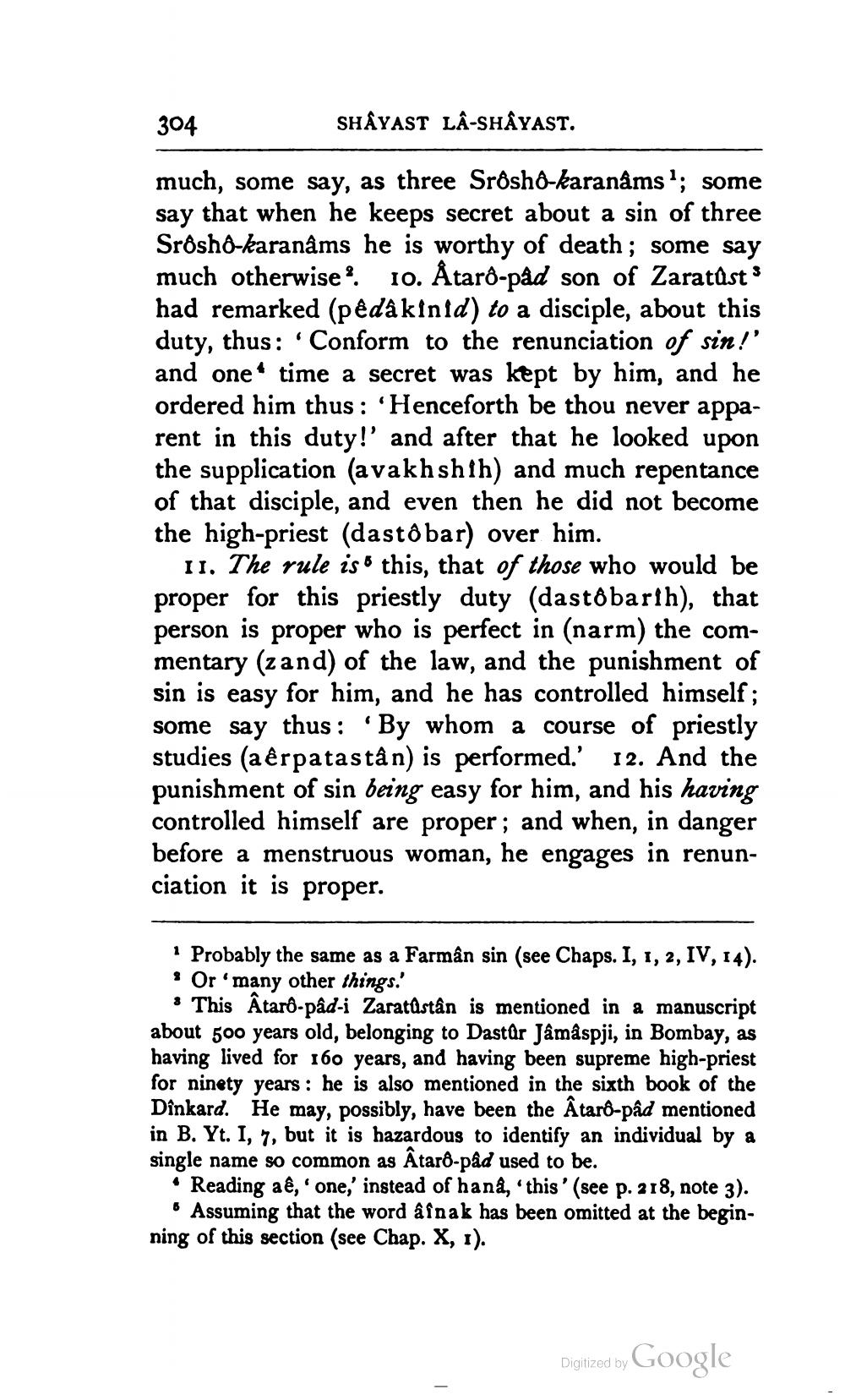________________
304
SHẢYAST LÂ-SHẦYAST.
much, some say, as three Srôshô-karanâms"; some say that when he keeps secret about a sin of three Srôsho-karanâms he is worthy of death; some say much otherwise? 10. Åtaro-pad son of Zaratāsts had remarked (pêda kinid) to a disciple, about this duty, thus: Conform to the renunciation of sin!' and one time a secret was kept by him, and he ordered him thus: 'Henceforth be thou never apparent in this duty!' and after that he looked upon the supplication (avakh shih) and much repentance of that disciple, and even then he did not become the high-priest (dastóbar) over him.
11. The rule iso this, that of those who would be proper for this priestly duty (dastóbarih), that person is proper who is perfect in (narm) the commentary (zand) of the law, and the punishment of sin is easy for him, and he has controlled himself; some say thus: 'By whom a course of priestly studies (aêrpatastân) is performed.' 12. And the punishment of sin being easy for him, and his having controlled himself are proper; and when, in danger before a menstruous woman, he engages in renunciation it is proper.
? Probably the same as a Farmân sin (see Chaps. I, 1, 2, IV, 14). * Or 'many other things.'
* This Âtaro-pâd-i Zaratūstân is mentioned in a manuscript about 500 years old, belonging to Dastar Jâmåspji, in Bombay, as having lived for 160 years, and having been supreme high-priest for ninety years : he is also mentioned in the sixth book of the Dînkard. He may, possibly, have been the Ataro-pâd mentioned in B. Yt. 1, 7, but it is hazardous to identify an individual by a single name so common as Ataro-pâd used to be.
• Reading aê, one,' instead of hand, this' (see p. 218, note 3).
• Assuming that the word ainak has been omitted at the beginning of this section (see Chap. X, 1).
Digitized by Google




